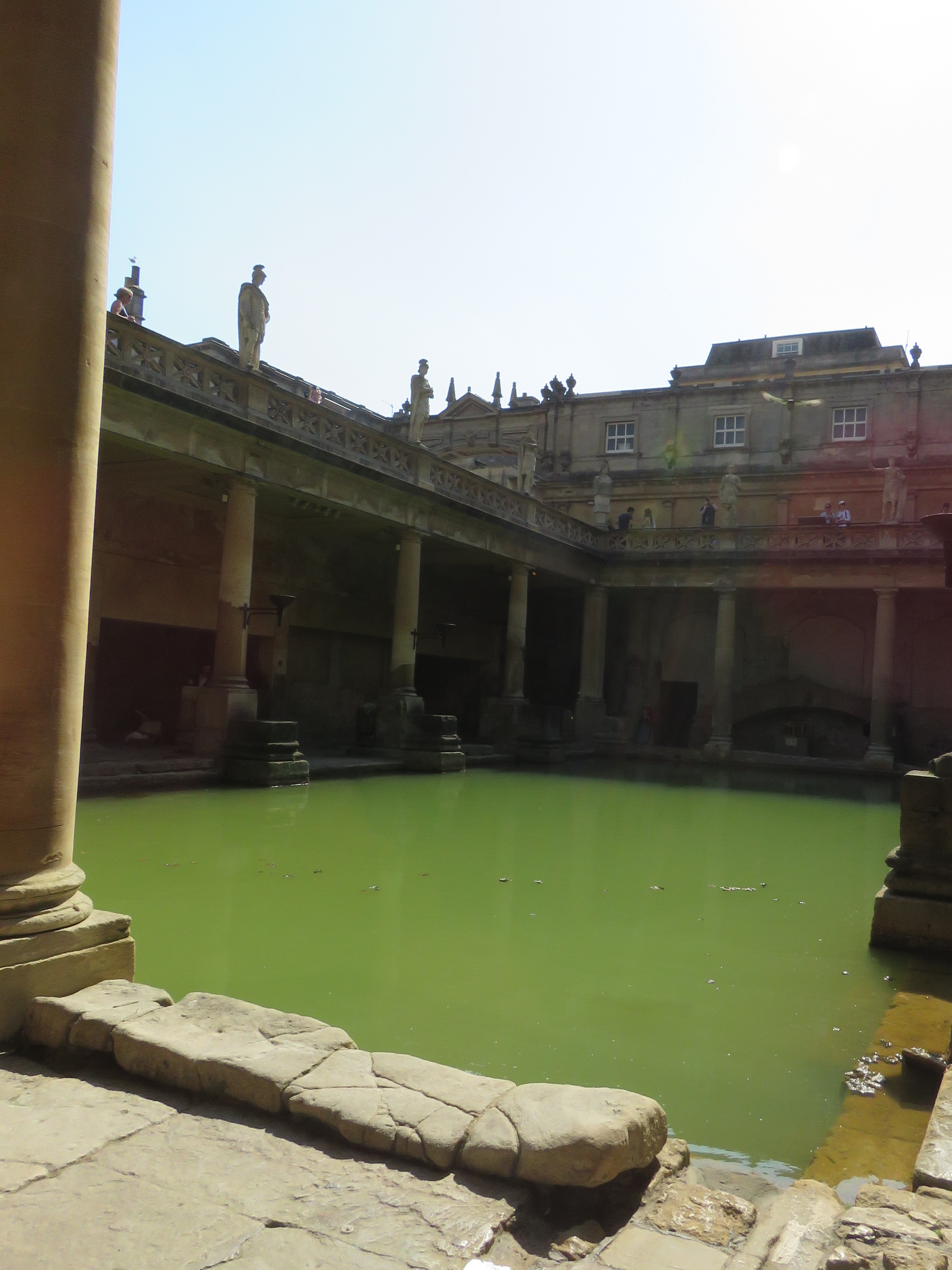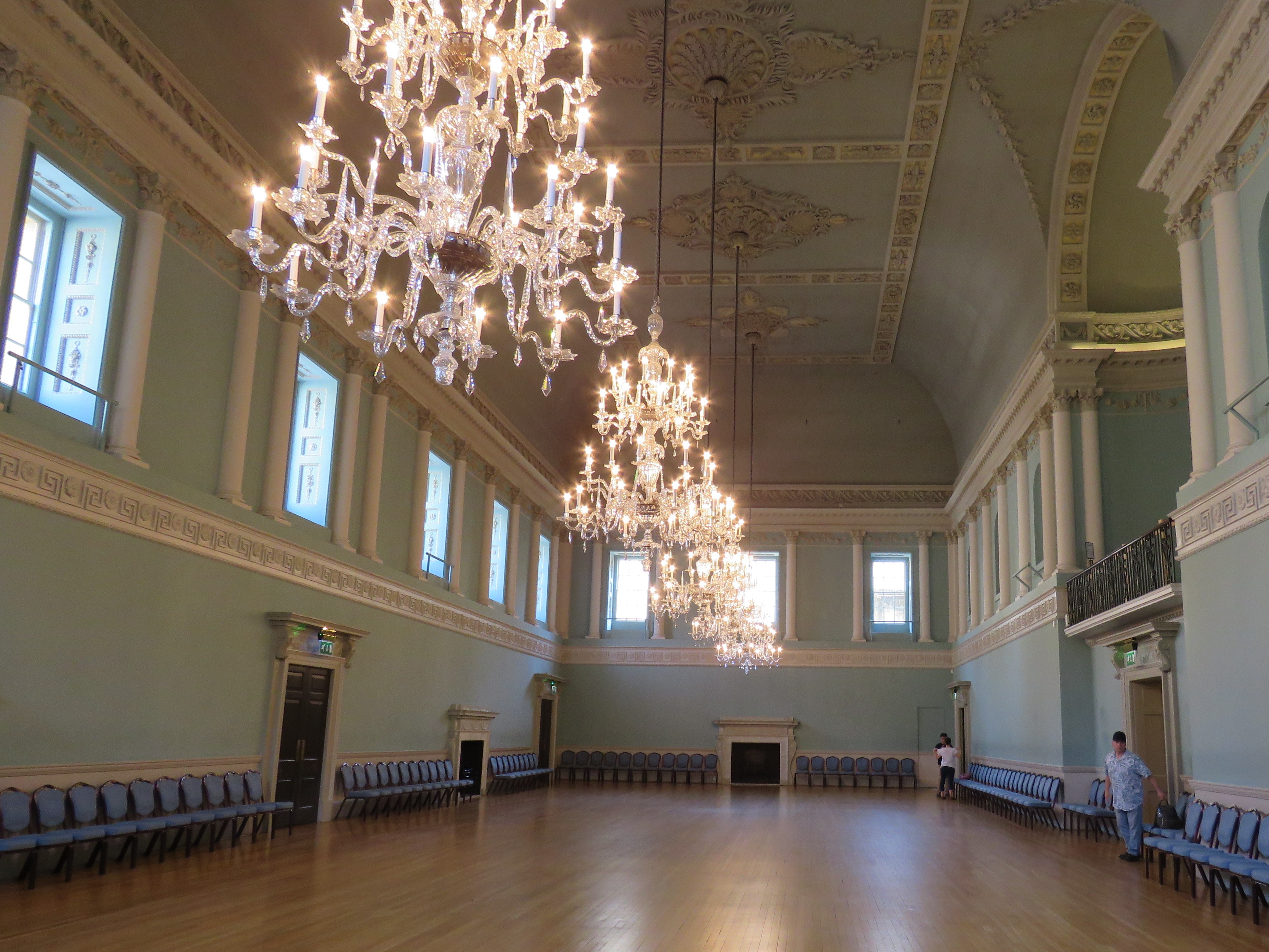No, I’m not talking about poker in the bathtub, in case you’re wondering.

Why Bath?
Bath, England was a popular summer destination among the gentry and aristocracy during the Regency and Victorian Eras.
Many people went there for their health. They drank mineral waters from a fountain in the Pump Room (pictured below to the right) and frolicked or soak in the Great Bath, a pool constructed by the Romans hundreds of years ago which is fed by a natural spring. (Pictured left) The mineral waters were and are believed to be good for one’s health. Also, the country air is remarkably healing. I was fortunate to visit this lovely town during my first visit to England.
Others went to Bath to socialize. Bath society had fewer pressures than London and it was less expensive to participate in social events there. Some visited Bath after the London Season in a second attempt to marry off their children.
Jane Austen and her family lived in Bath for a time, a move some historians believe was her parents’ attempt to find a husband for Jane and her sister, Cassandra. This created a need for past times other than tea, balls, and partaking of the famous mineral waters–specifically to play games of chance and gamble.
Clubs and Gambling
Regardless of their reasons, those who visited or resided in the lovely town of Bath likely shared the same fondness that the rest of the country had for games and gambling. However, the Gentleman’s Clubs like those in London, which you can read more about here, did not seem to exist in Bath.
Keep in mind that clubs weren’t always for political discussions or gambling. Many existed for shared interests such as sports, gatherings of those who went to the same school, etc.

These clubs or groups rented rooms for their gatherings. Extant newspaper articles in the Bath Chronicle and Weekly Gazette mention official clubs assembling in Bath. (pictured left) Other articles mention informal gatherings or reunions.

Bath Assembly Rooms
Gamblers found many ways to tempt Lady Luck, even in the quiet town of Bath. Many gathered for private games in homes or rented rooms in public buildings or pubs. Others visited and bet on horse races.
A very popular place to play cards and other games of chance was the card room in the Upper Rooms of the Bath Assembly Rooms. This “new room” was added in 1777. It became a very popular place not only for gambling but to retreat from the crowded dance floor and marriage mart taking place downstairs in the Assembly Rooms.
Kingson Assembly Rooms
In addition, the Kingson Rooms, founded by the Duke of Kingston, provided a location for playing games. Fellow author and researcher Penny Hampson recommended the 1819 edition of P. Egan’s Walks Through Bath
It has a wealth of information such as this: “In the season a superb concert and ball is given to the ladies, at Kingston-Rooms. Strangers are admitted twice in the year; but noblemen, gentlemen, and professional men only, are elected as members. Of the kind, it is the first society in England.” And later in that same book: “Ladies and gentlemen disposed to become members, are requested to have their names entered in the society’s subscription-book, at the Kingston-Room.”
Further on in the book: “The visitor is much delighted in viewing these elegant rooms, at which the balls and amusements are regulated by the following rules, adopted at a general meeting of the subscribers, who also possess the exclusive right of voting at an election of Master of the Ceremonies. ‘* KINGSTON ASSEMBLY ROOMS, November 9, 1816.”
This makes it clear that Kingston was an actual club for gentlemen. Going on to cite this book, “It has a reading- room, well furnished with maps, books, reviews, newspapers, &c. An apartment is also devoted to the games of chess and backgammon; and another for billiards. It is now two separate establishments, one of which is elegantly fitted up for the accommodation of the Bath and West of England Club. The latter invite the company to the amusement of a fancy or undress ball on Tuesday, and a dress ball on Friday nights, during the winter season.”
From this, we learn the names of other clubs, the Bath and West of England Club, which met at the Kingston.
After much research, I believe this is the only club of its kind in Bath. This historic site still exists and there are photos here. I wish I had known of its existence when I visited Bath.
In conclusion, while exclusive structures that housed clubs such as White’s and Brooks’s of London do not appear to have been plentiful in Bath, men did have clubs. People gathered to dance, socialize, discuss events and politics, and gamble to their hearts’ content.
For more information, check out Internet Archive, Open Library Books, Walks_through_Bath
Also, try Sarah Waldock’s excellent reference book on Regency Bath called The Regency Miss’s Survival Guide to Bath, by Sarah Waldock, August 26, 2019 It has over 300 pages of information she gleaned from original primary sources, a wealth of what businesses were where and costs.
